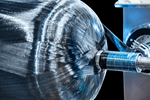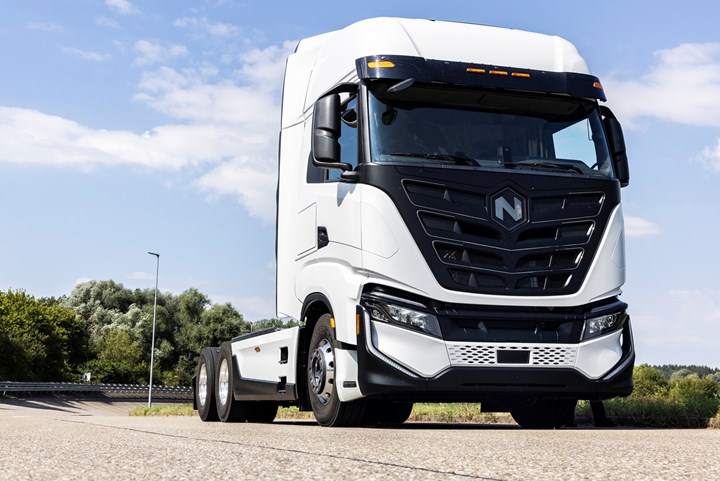IVECO and Nikola open manufacturing facility for electric heavy-duty trucks
The production line in Ulm, Germany is anticipated to be capable of manufacturing approximately 1,000 Nikola Tre trucks per shift per year.
Share
Read Next
Iveco (Turin, Italy) and Nikola Corp. (Salt Lake City, Utah, U.S.) inaugurated a new manufacturing facility in Ulm, Germany. The facility will be dedicated to the Nikola Tre electric heavy-duty trucks, which will start production by the end of the year.
The Ulm manufacturing facility — which spans 50,000 square meters — reportedly features a final assembly process that has been designed for electric vehicles (EVs). The production line is anticipated to be capable of manufacturing approximately 1,000 units per shift per year and is expected to undergo progressive ramp-up in the following years. The site has a goal of achieving zero waste, zero accidents, zero failures and zero stock. According to the companies, its key characteristics include a fully digital shopfloor management designed for 100% traceability and paperless operations.
The first Nikola Tre models produced here will be delivered to select customers in the U.S. in 2022. In addition to the battery-electric vehicle (BEV) production model, the next evolution of this modular heavy-duty platform comes in the form of the fuel cell electric vehicle (FCEV) prototype. This subsequent model will enter production in Ulm by the end of 2023.
The Nikola Tre is designed and projected as a safe, reliable and high-performance, zero-emission transport solution. It features Nikola’s electric and fuel cell technology, along with key components provided by Bosch (Gerlingen, Germany). Together, the teams have designed a modular platform capable of fuel cell as well as battery propulsion technology. Launching the battery technology first is projected to drive the maturity of the underlying platform before adding the fuel cell as a range-extension technology.
Related Content
-
ASCEND program update: Designing next-gen, high-rate auto and aerospace composites
GKN Aerospace, McLaren Automotive and U.K.-based partners share goals and progress aiming at high-rate, Industry 4.0-enabled, sustainable materials and processes.
-
Jeep all-composite roof receivers achieve steel performance at low mass
Ultrashort carbon fiber/PPA replaces steel on rooftop brackets to hold Jeep soft tops, hardtops.
-
Recycling hydrogen tanks to produce automotive structural components
Voith Composites and partners develop recycling solutions for hydrogen storage tanks and manufacturing methods to produce automotive parts from the recycled materials.













